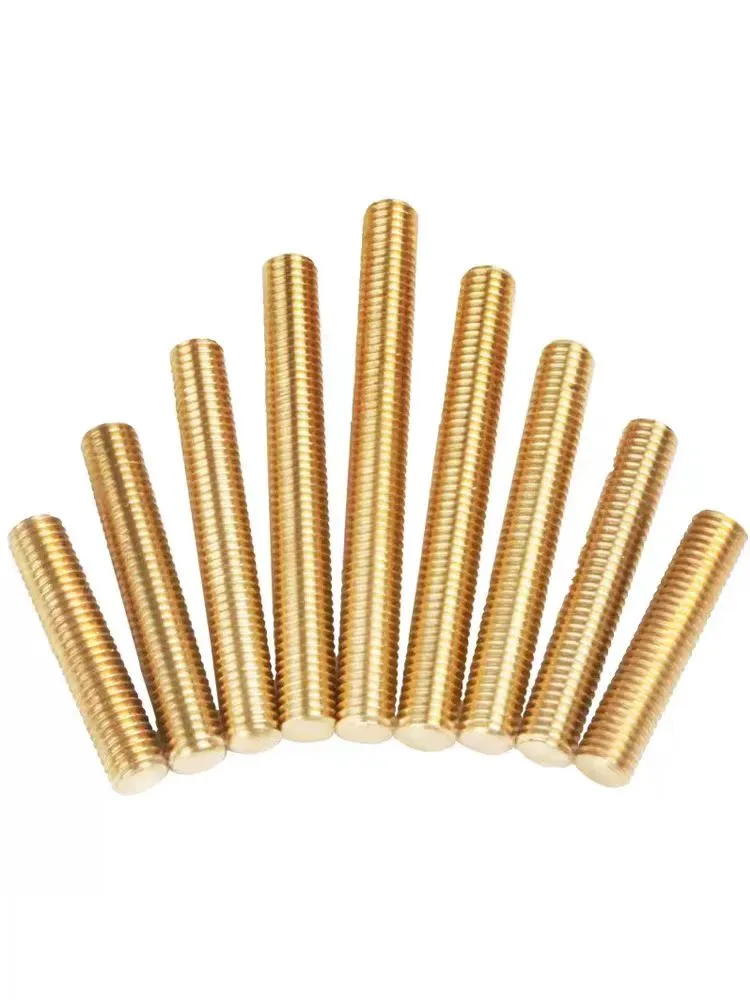

Stud Bolt Specifications and Standards in Mechanical Engineering Applications
11月 . 16, 2024 15:26 Back to list
Stud Bolt Specifications and Standards in Mechanical Engineering Applications
Understanding Stud Bolts and DIN 976 Standards
Stud bolts are essential components in various industrial applications, serving as reliable fasteners that provide stability and strength to structures. Designed for high-strength applications, these fasteners are critical in sectors such as construction, automotive, oil and gas, and manufacturing. One of the notable standards for stud bolts is the German standard DIN 976, which outlines specifications and dimensions that ensure consistency and reliability across different applications.
What are Stud Bolts?
Stud bolts are elongated fasteners with threads on both ends and a smooth or unthreaded portion in the center. They are typically used in conjunction with nuts, allowing for a strong hold between two or more components. The design of stud bolts allows for easier adjustments and replacements, making them a preferred choice for maintenance purposes in various engineering scenarios. Stud bolts come in various materials, including carbon steel, stainless steel, and alloy steel, and are available in different sizes and grades to suit specific load requirements.
Overview of DIN 976
The DIN 976 standard specifies the technical requirements for stud bolts, ensuring they meet specific dimensional and performance criteria. This standard outlines the length, diameter, and threading specifications necessary for stud bolts used in various applications. Furthermore, DIN 976 categorizes stud bolts based on their tensile strength, typically measured in megapascals (MPa). By adhering to this standard, manufacturers can guarantee that their products will perform reliably under the expected loads and conditions.
stud bolt din 976

Importance of Compliance
The significance of adhering to the DIN 976 standard cannot be overstated. It provides a universal reference point for manufacturers, distributors, and users of stud bolts, ensuring compatibility across different projects and systems. Compliance with this standard not only minimizes the risk of equipment failure due to improper fastener specifications but also enhances safety in industrial applications. When materials meet standardized specifications, engineers and maintenance personnel can trust that they will perform as expected, contributing to overall operational efficiency.
Applications of Stud Bolts
Stud bolts are used in a wide range of applications. In the oil and gas industry, they are crucial for securing pipelines and flanges, where high-pressure conditions are prevalent. In construction, they are employed to join structural steel members, while in the automotive sector, they are used in engine assemblies and chassis applications. The versatility and reliability of stud bolts make them a staple in various sectors, enhancing the integrity of assemblies and structures.
Conclusion
In conclusion, stud bolts, particularly those manufactured according to DIN 976 standards, play a vital role in ensuring the strength and reliability of mechanical assemblies across numerous industries. Their standardized specifications help in minimizing failures and ensuring safety, making them essential components in any industrial toolkit. As technology advances and demands for high-performance materials increase, the importance of adhering to established standards like DIN 976 will continue to be paramount, ensuring that engineering projects remain successful and safe.
Latest news
-
Premium Fasteners Manufacturer | AI-Driven Solutions
NewsAug.01,2025
-
Hot Dip Galvanized Bolts - Hebei Longze | High Strength, Corrosion Resistance
NewsAug.01,2025
-
High-Strength Hot Dip Galvanized Bolts - LongZe | Corrosion Resistance, Custom Sizes
NewsAug.01,2025
-
Best Self Tapping Screws for Drywall - Fast & Secure Installation
NewsJul.31,2025
-
High-Strength Hot Dip Galvanized Bolts-Hebei Longze|Corrosion Resistance&Customization
NewsJul.31,2025
-
Hot Dip Galvanized Bolts-Hebei Longze Metal Products|Corrosion Resistance&High Strength
NewsJul.31,2025

